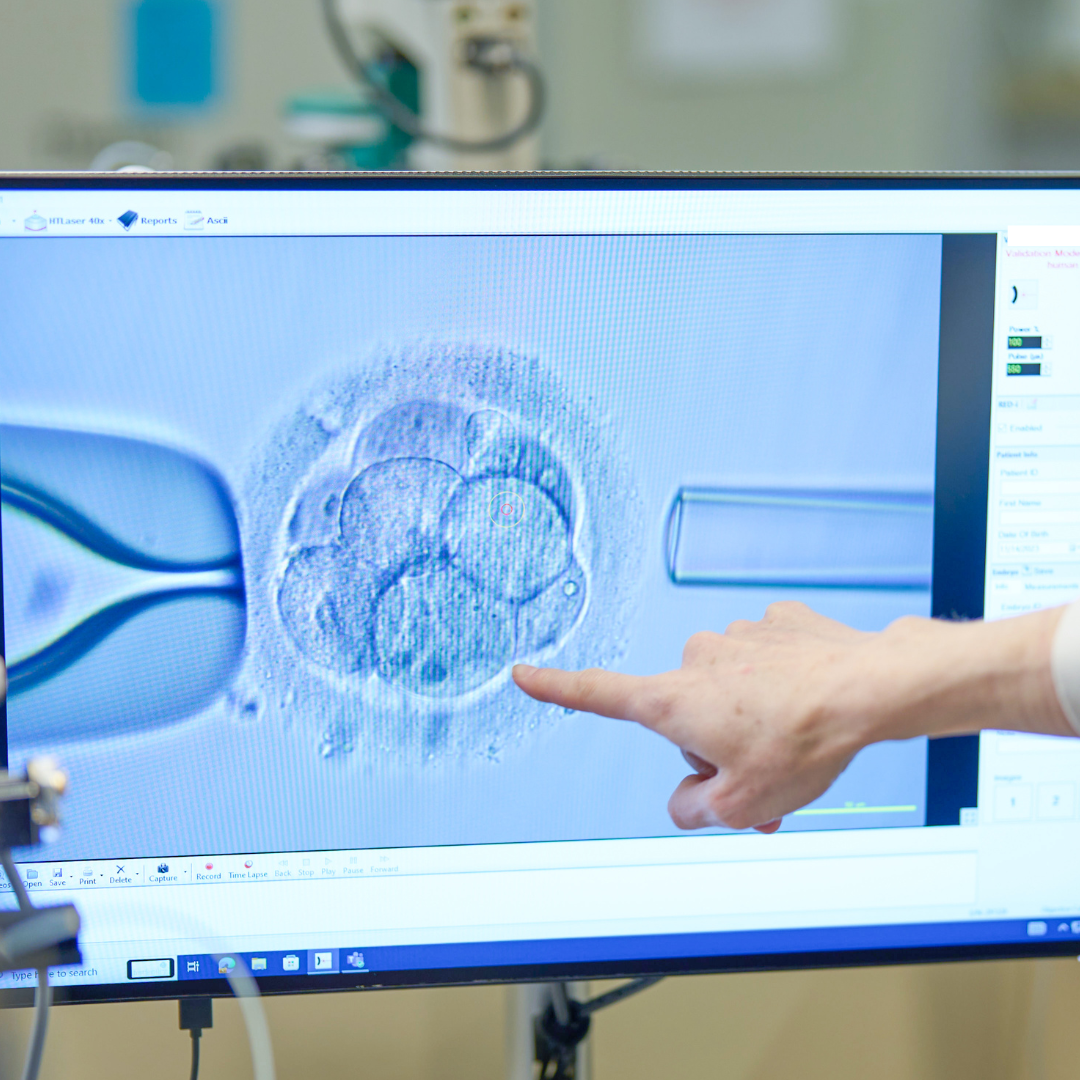IUI vs IVF

While there are a variety of fertility treatment options for patients, the majority fall into one of two categories – IUI (intrauterine insemination) and IVF (in vitro fertilization). These two categories of treatment are very different. They vary regarding invasiveness, time commitment, likelihood of success, and cost. In this blog I am going to review both treatment options, their pros and cons, and how a fertility doctor decides what is best for you.
What is IUI treatment?
IUI stands for an intrauterine insemination taret: blank. This is a fertility treatment that allows for significantly more high-quality sperm to reach the fallopian tubes at the time of ovulation. Through intercourse, typically a few hundred motile sperm get up to the fallopian tubes, but with IUI, the goal is to isolate millions of motile sperm from the ejaculate and place them in the uterine cavity so they can swim into both fallopian tubes.
How is IUI performed?
IUI treatment can be done with a woman’s natural cycle, but more often oral medications like Clomid and Letrozole are used to help the ovaries grow and ovulate more than one egg. The cycle, with or without medication, is monitored to determine when a woman is likely to ovulate to best time an IUI. An IUI is not a terribly invasive procedure. For most women it feels like having a pap smear. There is no anesthesia used and no restrictions on daily activities.
Who should consider IUI treatment?
IUI treatment is often recommended for couples with mild male factor infertility or unexplained infertility when women are less than 38 years of age. IUI is also a treatment used by women trying to conceive with donor sperm. Typically, fertility doctors don’t advise patients to spend too much time with IUI treatment. Commonly, after three attempts, many doctors will advise to consider IVF.
What is the likelihood of an IUI cycle working?
IUI treatment essentially increases the chance of pregnancy each month by getting more eggs and sperm together at the right time in hopes that a healthy embryo will be created. However, my patients are also surprised that IUI treatment does not give high odds of success. Age plays into the chances of achieving pregnancy through IUI treatment. For women less than 35 with infertility, each IUI treatment cycle gives no more than ~15% chance of pregnancy. These odds drop to ~5-6% for women over 40.
How much does IUI treatment cost?
IUI treatment is typically a fraction of the cost of IVF.
What is IVF?
IVF is a significantly more effective and successful fertility treatment option compared to IUI. This procedure can be done using a couple’s own eggs or with egg donation from a younger woman.
Why would my doctor advise IVF?
There are several reasons why your fertility doctor may recommend IVF rather than IUI. Below is a comprehensive list:
- Woman > 38
- Previous failed attempts with IUI treatment
- Blocked or absent fallopian tubes
- Severe male factor
- Endometriosis
- Diminished ovarian reserve (DOR)
- Uterine factor (need for a future gestational carrier)
- Known increased risk for a genetic disease warranting embryo testing (PGT-M)
- Recurrent pregnancy loss
- Family planning and balancing
- Fertility preservation
What is involved with an IVF treatment cycle?
IVF means we are fertilizing eggs outside of a woman’s body. The first step is for a woman to use injectable medications to get her eggs to grow. This comes with frequent monitoring with your doctor so that the optimal time to extract the eggs that have grown from the ovaries can be determined. Once we have the eggs in the lab, they need to be fertilized with sperm. While there is more than one way for this to happen, most often a procedure called ICSI is done which allows us to select a single normal appearing sperm and directly inject it into an egg. Once an egg fertilizes it is called an embryo. The embryos that are created in an IVF cycle grow in the laboratory for 5-7 days before we can either transfer an embryo into a uterus in hopes of achieving pregnancy, or biopsy and genetically test the embryos that developed properly depending on a patient’s needs.
What are the chances that IVF will work?
Due to the constant evolution and progression of IVF technology, success rates have significantly risen over the past 3 - 4 decades. But it is important to understand that the chances of having a baby from IVF are still very much dependent on a woman’s age. For women < 35 there is a ~50-60% chance of live birth after IVF treatment, however these odds drop to ~20-30% as women near 40. Screening embryos for chromosomal abnormalities (preimplantation genetic testing for aneuploidy (PGT-A)) and transferring a normal embryo gives close to a 60% chance of pregnancy regardless of a woman’s age.
How much will it cost to do IVF?
IVF is expensive and there are several costs to consider: (1) the cost of medications necessary, (2) the cost to monitor the cycle, (3) IVF laboratory fees, (4) additional charges with the cycle for ICSI, PGT-A and cryopreservation, and (5) insurance benefits. At RMA of New York – Long Island, our prices are comparable to other clinics and we do our best to provide financial options to our patients.
If you are considering IUI or IVF treatment or want more information, please reach out to RMANY Long Island to set up a fertility preservation consultation Visit our website or call (631) 752-0606 to make an appointment.
